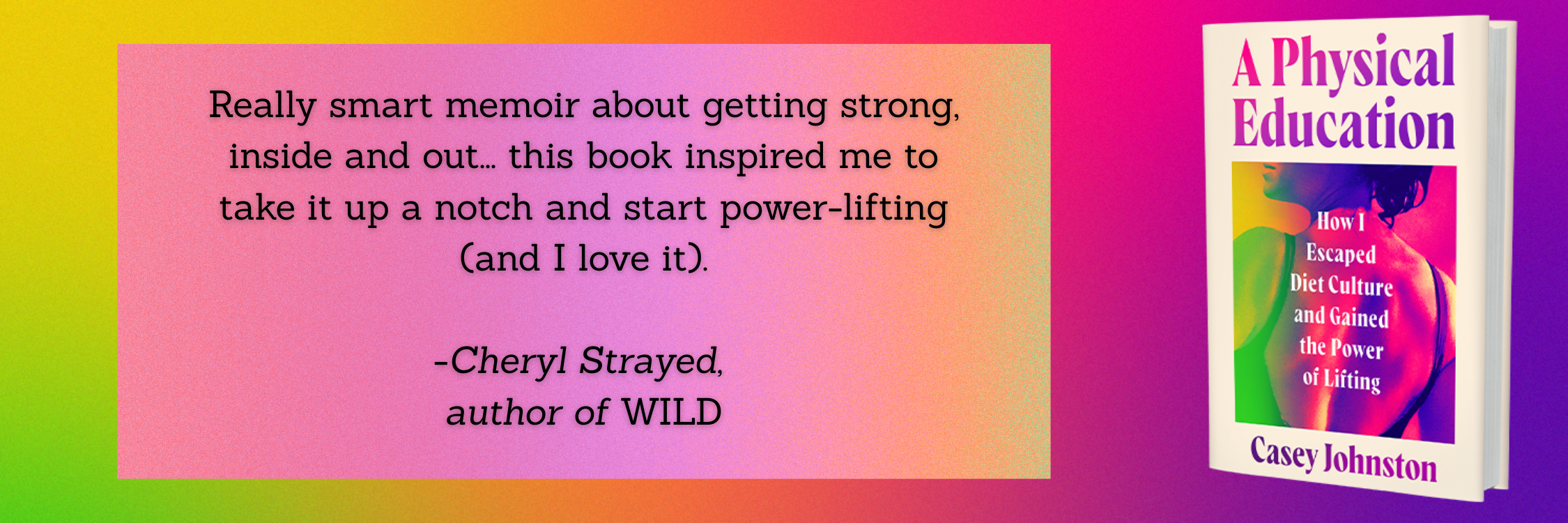how i will raise the first-ever child with no food issues ever


ASK A SWOLE WOMAN
This is the paid Sunday Ask A Swole Woman edition of She’s a Beast, a newsletter about being strong mentally/emotionally/physically.
The next few advice newsletters will feature some of the questions I was asked at this summer of book tour events for A Physical Education. The questions are paraphrased, and some will be mash-ups of multiple similar questions I was asked.
The Question
Now that you are a mother, how are you going to prepare your son for having a great relationship with body, food, exercise, and living in the world?
How has becoming a parent changed how you think about your own body?
Are you still lifting now that you have a new baby?
When you pick up your baby as he gets larger and larger, is that progressive overload?
The Answer
I am still lifting, and yes, picking up a progressively larger child does in fact count as progressive overload (see Milo of Croton). The much bigger problem I was not prepared for was the muscular endurance aspect of holding a baby, and when I came home from the hospital my arms were so tired I could not wash my hair. You adapt quickly though! Endurance is easier to build than strength.
The more I’ve tried to answer this question comprehensively, the more it feels like a trap. It feels like a question you should ask me in 50 years, versus now.[^1] Before becoming pregnant, it never occurred to me to see anything I did through the eyes of my hypothetical children. Now, I am continually experiencing the waking nightmare of my child(ren) someday reading this bitterly, pissed off by my assuredness that I was going to do everything right, knowing that I did many significant things wrong.[^2]
But just to attest to my humble and good intentions: There is nothing that will make you want to become the better person you always intended to be like having a baby. In a good way! I was filled with a new sense of purpose, and a new clarity about how to discern between things I did or didn’t want to do. This is probably especially true if you’ve spent any significant time in therapy mulling over exactly what went on in your childhood, and what you thought about it then, and what you think about it now.
Of course I want to do all the usual things: don’t make negative comments about my body; don’t categorize foods into “good” and “bad”; offer a variety of foods; eat meals together; do physical activities together; etc. But what preoccupies me is more abstract.
